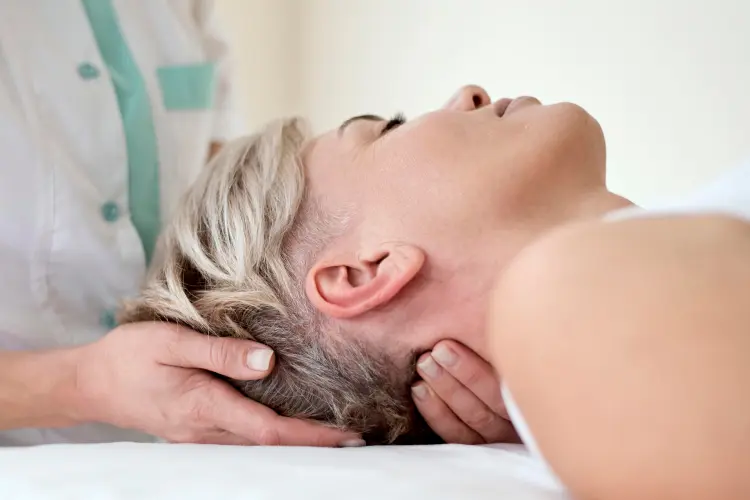It’s necessary to take immediate action after a head injury to ensure proper recovery and minimize the risk of long-term complications. That is because a head injury, also known as traumatic brain injury (TBI), can occur from a sudden blow or jolt to the head. It can range from mild to severe and can result in temporary or permanent changes in brain function. Remember, symptoms may not appear right away! So some head injuries may be more serious than they initially appear. A doctor will be able to assess the extent of the injury and provide proper treatment and care. Additionally, keeping track of any symptoms, changes in behavior, or cognitive functions can help healthcare providers determine the best course of action for recovering from a head injury. And in our article, you can easily find such information. Here we will discuss the common symptoms of a head injury, precautions to take after TBI, and tips for recovering from a head injury. You will find out what to do after a head injury. All you will need is just read and follow our information!
Common Symptoms of a Head Injury
Typical symptoms of a head injury involve:
- Headache. One of the most common symptoms of a head injury is a headache. The headache may be mild or severe and may last for several hours or days.
- Nausea. Some people may experience nausea after a head injury. It can be accompanied by dizziness, or vomiting.
- Confusion. This standard symptom can range from mild disorientation to more severe cognitive problems.
- Memory loss. It is also known as amnesia. It can range from temporary memory loss to more permanent cognitive impairment.
- Blurred vision. That symptom may be accompanied by sensitivity to light and sound.
- Ringing in the ears. Tinnitus, or ringing in the ears, can occur after a head injury and may persist for a long period of time.
- Fatigue. This is a typical symptom that may last for several days or weeks.
- Sleep disturbances. Sleep disturbances, such as insomnia or excessive drowsiness, can also occur after a head injury.
In severe cases, a head injury can result in a loss of consciousness, seizures, difficulty speaking, and loss of coordination. If you experience any of these symptoms, it’s essential to seek medical attention. Early diagnosis and treatment are critical in order to minimize the risk of long-term complications and ensure proper recovery.
Precautions for TBI
The major precautions for TBI include:
- Resting and avoiding physical activity. Engaging in physical activity too soon after a head injury can increase the risk of further injury and delay the healing process. It’s essential to rest and avoid strenuous activities until cleared by a doctor.
- Avoiding alcohol and drugs. Substance abuse can slow down the healing process. it can even worsen symptoms such as headache and dizziness.
- Staying hydrated. Drinking plenty of water can help to minimize symptoms and promote healing.
- Getting plenty of sleep. Getting adequate sleep is vital for the brain to heal and recover from a head injury.
- Protecting the head from further injury. Wearing a helmet while participating in activities that carry a risk of head injury, such as riding a bike or playing contact sports, can help to minimize the risk of further injury.
It’s vital to take the necessary precautions for TBI. It will help to minimize the risk of further injury and to aid in the recovery process. Don’t forget to consult with a doctor or a healthcare worker. It is the key condition before returning to normal activities, such as work or exercise.

TBI Recovery Tips
Here are the most critical TBI recovery tips:
- Gradually return to normal activities
- Look after your physical health
- Use professional help
- Take a look at physical and cognitive therapies
- Stay positive and stay engaged with life
- Follow up with medical professionals regularly to monitor progress
TBI can result in a range of symptoms and long-term complications. However, with proper care and support, it is possible to make a full recovery from a TBI. By following these easy tips for TBI recovery, individuals affected by TBI can improve their quality of life, reduce symptoms, and enhance the healing process. It’s very important to remember that every individual’s recovery is unique. So it’s essential to work with healthcare professionals. They will help you to develop a personalized care plan.
Let’s take a look at TBI recovery tips more deeply!
Managing Your Mental Health
Leveling up mental health is the first thing about what you can do after getting a head injury. Some of the ways to manage your mental health include:
- Seeking support from loved ones. Talk to your friends and family about your feelings and experiences. This can help you feel better and cope with the injury.
- Engaging in relaxation techniques. Deep breathing, meditation, and yoga can help to reduce stress and anxiety.
- Seeking professional help. You may need to find professional help from a therapist or chiropractor. Stop experiencing depression, anxiety, or other mental health concerns.
Taking Care of Your Physical Health
Physical health plays a crucial role in the recovery process of a TBI. Some of the ways to take care of your physical health include:
- Getting plenty of rest. It is essential to allow the body to rest and recover from the injury. Avoid strenuous physical activity and get plenty of sleep.
- Staying hydrated. Drinking enough water is vital for overall health. And it’s especially important for those with a TBI. Dehydration can exacerbate symptoms and slow down the traumatic brain injury recovery process.
- Eating a healthy diet. A well-balanced diet for the body can help you heal and recover. Include foods high in protein and vitamins, and avoid processed foods and sugar.
Engaging in Cognitive and Physical Therapy
Physical therapy and cognitive therapy have such crucial benefits like:
- Improving physical function. Physical therapy can help to improve coordination, balance, and overall physical function.
- Enhancing cognitive function. Cognitive therapy can help to improve memory, attention, and other cognitive abilities.
- Increasing independence. Both therapies can help to increase independence and improve quality of life.
Recovering from a head injury is a complex process. It requires proper medical attention and a positive attitude. Whether it was a car accident or another situation, just follow our tips! You will improve your chances of a successful recovery. But don’t forget to work closely with a healthcare worker. Find a professional chiropractor or occupational therapist. They can help you to determine the best course of therapy for your individual needs. With the right support and care, it is possible to make a full recovery from a TBI and return to a healthy and fulfilling life.
FAQ
What should you do immediately after hitting your head?
If you experience a head injury, it’s important to seek medical attention as soon as possible. In the meantime, rest, stay hydrated, and avoid alcohol and drugs.
How do I know if my head injury is serious?
Do you have any symptoms such as loss of consciousness, seizures, or difficulty speaking? Then seek medical attention immediately as these may indicate a serious head injury.
What should you not do after a head injury?
Avoid physical activity, alcohol, and drugs after a head injury. Instead, focus on rest, hydration, and self-care.


Related posts
Today is an era dominated by digital conveniences and desk-bound occupations. So, the effects of a sedentary lifestyle have emerged as a pervasive concern.
Our guide aims to equip people with the knowledge to understand the intricacies of internal injuries. They are arising as a result of car accidents. Join us on this informative trip.
Beyond merely treating injuries, chiropractors work to enhance the body's biomechanics. It allows sportsmen to move more potently and reduces the risk of future injuries.